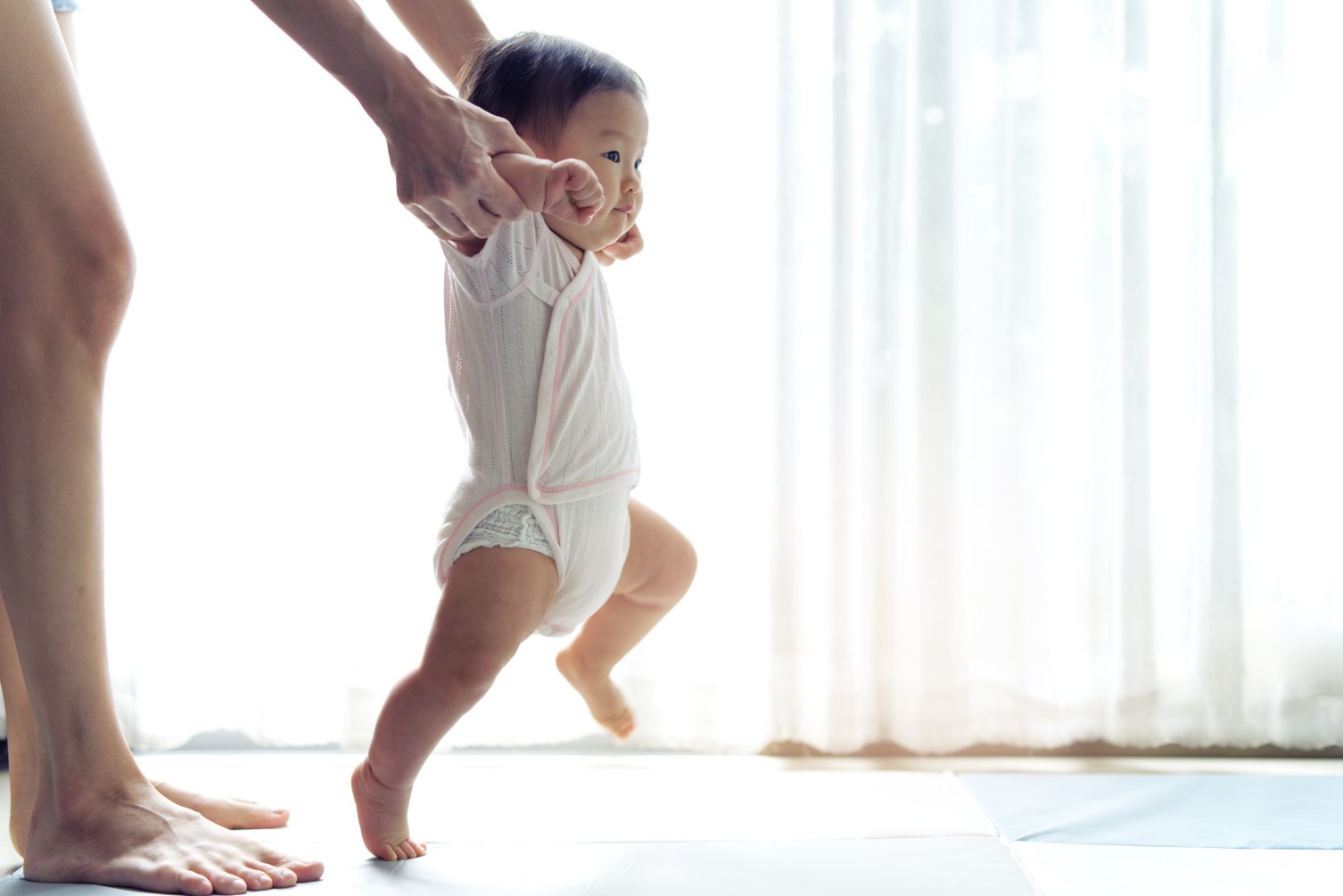Learning to walk is a major milestone for babies, but it can also disrupt their sleep. This article explores the link between walking and sleep, as well as other potential impacts of this developmental leap.
 A baby learning to walk with the help of an adult.
A baby learning to walk with the help of an adult.
Taking those first steps is a momentous occasion filled with joy and excitement. This significant achievement requires your baby to master a series of developmental milestones, strengthening and coordinating their muscles in entirely new ways. It’s a physically demanding process, and understandably, it can have repercussions beyond simply learning to walk. Could learning to walk affect your baby’s sleep?
How Walking Impacts Sleep Patterns
Just as life events can impact our own sleep, learning to walk can disrupt a baby’s established sleep routine. Think about how a busy day or a new experience can make it hard to fall asleep, or how physical exertion can lead to restless nights. The same principles apply to infants.
Learning new skills, like walking or talking, requires significant mental and physical effort. This can lead to overtiredness, making it difficult for babies to settle down. Conversely, the excitement and stimulation of newfound mobility might make them resist sleep, leading to more frequent night wakings, longer settling times, and increased daytime naps.
Behavioral Changes Associated with Learning to Walk
Sleep deprivation, or even oversleeping, can lead to mood swings and irritability in adults. Similarly, a baby learning to walk might become more fussy or clingy due to fatigue and the physical demands of mastering this new skill. These behavioral changes are a natural consequence of the significant developmental changes they’re undergoing.
Weight Fluctuations in Newly Walking Toddlers
Parents often observe a change in their baby’s weight around the time they start walking. While babies typically gain weight rapidly in their first year, the increased physical activity associated with walking can sometimes lead to a slowdown in weight gain or even slight weight loss. This is because energy previously dedicated to growth is now being used to fuel their newfound mobility.
Increased activity levels also mean a greater need for calories. Expect your newly mobile toddler to be hungrier and potentially wake more frequently for feedings, further impacting their sleep patterns. While minor weight fluctuations are normal, significant changes warrant consultation with a pediatrician.
Managing Activity Levels in Toddlers
While physical activity is crucial for development, parents might wonder if their toddler is overdoing it. Experts recommend at least 180 minutes of activity spread throughout the day for toddlers. Providing safe spaces for exploration, like parks or play areas, allows them to burn off energy and promotes healthy development. Balancing active time with quiet activities, such as coloring or reading, can also help regulate their energy levels.
Supportive footwear is essential for toddlers who are spending more time on their feet. Remember that little legs tire more quickly than adult legs. Encourage rest when needed, and consult a pediatrician if you have any concerns about your child’s activity levels or development.
In conclusion, learning to walk is a transformative experience that can significantly impact a baby’s sleep, behavior, and even weight. Understanding these changes can help parents navigate this exciting, yet sometimes challenging, phase of their child’s development. Remember, these changes are typically temporary and part of the natural process of growing up.
